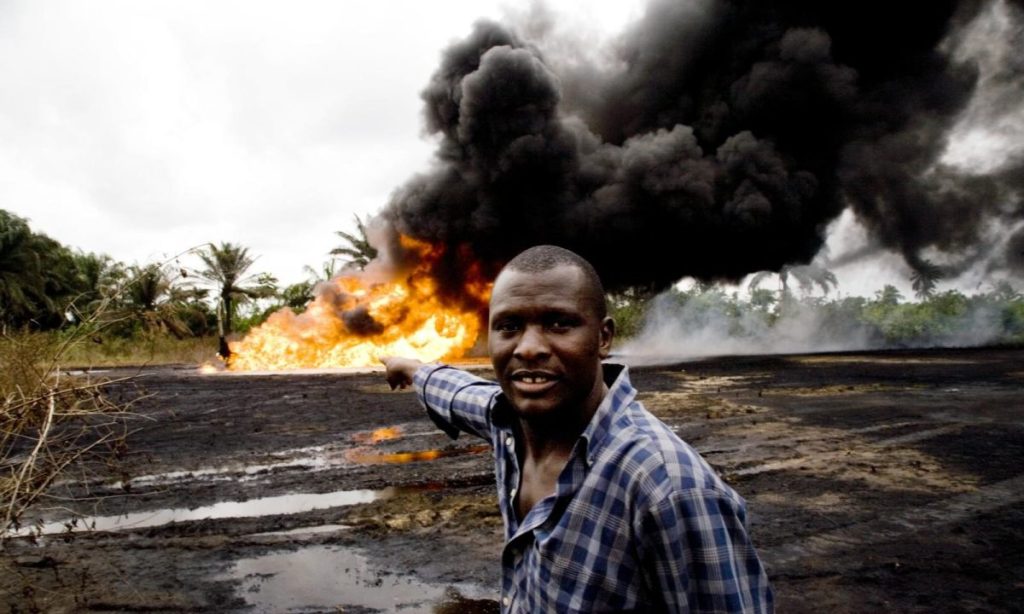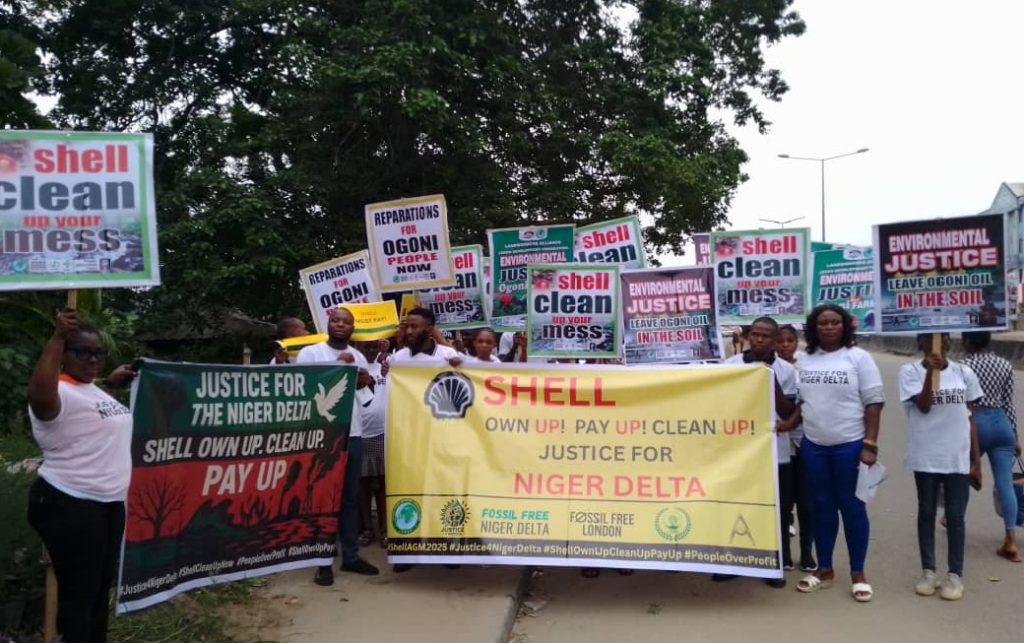
Mkpoikana Udoma
Port Harcourt — Outrage is mounting in the Niger Delta as environmental groups, civil society organizations, and affected communities have accused Shell of abandoning its pollution legacy in the region following the completed $2.4 billion sale of its subsidiary, the Shell Petroleum Development Company, SPDC, to Renaissance Africa Energy Company.
During a protest march on Tuesday in Port Harcourt, Lekeh Development Foundation, Kebetkache Women Development Centre, and their allies demanded urgent environmental cleanup, full compensation, and an immediate halt to further oil activities in already devastated communities.
Scores of demonstrators marched with placards and banners from Rumuokwurusi Junction to Shell’s Residential Area on Aba Road, denouncing Shell’s recent sale of its Nigerian subsidiary, SPDC, to Renaissance Africa Energy without addressing what they called a “legacy of destruction.”

The demonstrators accused Shell of abandoning thousands of victims of pollution, gas flaring, and land degradation.
They demanded immediate remediation backed by transparent timelines, fair compensation, and the establishment of a community reparations fund with neutral oversight.
Melody Gold Barry-Yobo, Programme Coordinator, Climate and Gender Issues at Lekeh Development Foundation, speaking to newsmen during the march, described the environmental and human cost of oil extraction in the region as catastrophic.
“We demand that Shell should own up, pay up and clean up their mess in the Niger Delta region. Every attempt of Shell to divest from the Niger Delta region without restoring the land back to its original state, we stand here to declare that divestment criminal in all of its entirety.
“We thought Shell’s discovery of oil would bring development, but instead, it brought the blood of our men, women, and children. Our land is ruined, our waters contaminated with benzene, 900 times above WHO limits. Our people have no clean water, no food, no livelihood. All we have gotten is a death sentence from Shell.
“The Niger Delta people are left with nothing but diseases, sickness, abject poverty, loss of lives, hunger, and famine. We are not passive victims, we are survivors and defenders of our land.”
Also, Kebetkache Women Development Centre called attention to the health crisis linked to prolonged oil pollution.
In a chilling revelation, Programme Coordinator, Ms. Idongesit Smart, speaking on behalf of the group’s Executive Director, Dr. Emem Okon, disclosed medical findings that show hydrocarbon levels in the blood of women in Otuabagi, Bayelsa State wereover 8,000 times the WHO safety threshold.
“Women are suffering from respiratory diseases, fertility problems, breast cancer, eyesight impairment, among many others! Shell cannot divest without clean-up and remediation!” Smart said.
The group also demanded that Shell publicly acknowledge the scale of harm, that shareholders be informed of the company’s unfulfilled obligations in Nigeria, and that all attempts at legal evasion be halted.
“While Shell shareholders gather in comfort at the 2025 AGM, we remind you that your profits are soaked in the tears and suffering of our people. Your pipelines leak poison into our homes and rivers. Your flares choke our skies. Your silence and denial have become complicity in injustice.”
Student activists, represented by Evidence Amos, added that the crisis was also crippling education and endangering the future of youth in the region. “Oil pollution is affecting students’ health, disrupting schools, and degrading the socio-economic life of our communities,” Amos said.
The protesters also issued a strong message to HYPREP, urging the Federal Government agency to resist political bias and fully implement the UNEP report on Ogoni environmental restoration.
The protest follows a wave of criticism after Shell’s January 2025 announcement of the $2.4 billion sale of its onshore subsidiary SPDC to Renaissance, with many stakeholders warning the exit could become a permanent escape from responsibility unless urgently addressed.



